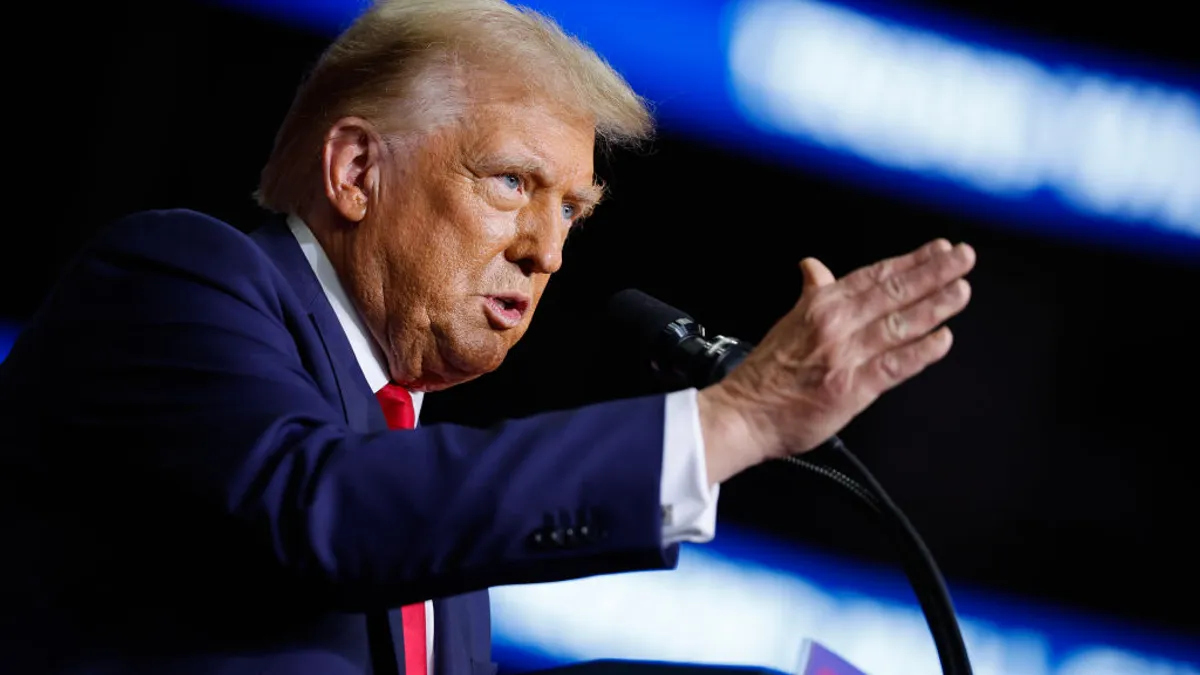Robinhood agreed to acquire Luxembourg-based crypto exchange Bitstamp in a $200 million deal that’s set to close in the first half of 2025, the companies said last week.
The move would allow Robinhood to expand geographically, diversify from its day-trading core and bring in institutional customers for the first time.
“Everything we’ve been doing in the past few years has been because our engagement from customers has been that they want more crypto products,” Johann Kerbrat, general manager of Robinhood Crypto, told The Wall Street Journal.
Robinhood offers 15 crypto tokens to U.S. retail investors, and more than 30 to European users. Bitstamp, by contrast, lists upward of 85.
Acquiring Bitstamp will “drive opportunities to broaden Robinhood’s participation in the evolving crypto value chain,” broker JMP said in a report seen by CoinDesk.
Owning an exchange means Robinhood can connect more deeply in the crypto ecosystem by offering more tokens to back assets and securities, analysts wrote.
“With a full exchange, [Robinhood] gets access to global liquidity, and thus can offer the liquidity to its own broker platform, potentially improving its economics,” Bernstein analysts Gautam Chhugani and Mahika Sapra wrote in a note last week.
Robinhood’s expansion in crypto comes a month after the Securities and Exchange Commission sent the company a Wells notice, indicating it intends to sue over the firm’s U.S. crypto business.
Dan Gallagher, Robinhood’s chief legal officer, said last month the company “firmly” believes “the assets listed on our platform are not securities and we look forward to engaging with the SEC to make clear just how weak any case against Robinhood Crypto would be on both the facts and the law.”
Robinhood delisted several cryptocurrencies the SEC identified as securities in a 2023 lawsuit against Coinbase.
Robinhood has also taken pains to avoid offering services such as staking or lending that have sparked SEC action against other crypto firms. Buying Bitstamp would give Robinhood access to the lending and staking products the exchange already offers outside the U.S.
“We’re obviously disappointed about the notice, but we’re going to keep working with the regulator,” Kerbrat told The Wall Street Journal. “At the same time, Robinhood Crypto is here to stay.”
Bitstamp is far from the highest-volume crypto trading exchange — it ranks 16th, according to CoinMarketCap data — behind Binance, Coinbase, Kraken and others.
But it does count itself among the oldest, having launched in 2011 and holding more than 50 active licenses and registrations around the world.
“Bringing Bitstamp’s platform and expertise into Robinhood’s ecosystem will give users an enhanced trading experience with a continuing commitment to compliance, security and customer-centricity,” Bitstamp CEO JB Graftieaux said in a statement last week.
Kerbrat lauded Bitstamp for showing “resilience through market cycles.”
“By seamlessly coupling customer experience with safety across geographies, the Bitstamp team has established one of the strongest reputations across retail and institutional crypto investors,” Kerbrat said.
The acquisition comes at a time when the frequency and number of users has declined since peaking in 2021 amid a meme-stock frenzy.
The company has steadily added facets to its business model over the past 18 months: retirement accounts, a credit card (buoyed by a separate acquisition), a long-delayed launch in the U.K. Robinhood is also looking to add futures trading later this year, according to The Wall Street Journal.
“We are in our early days in the EU and we are excited to keep expanding there and beyond,” Kerbrat told Reuters. “The acquisition of Bitstamp will accelerate our global expansion.”
Meanwhile, Robinhood’s crypto business is rapidly growing. Robinhood made 17% of its transaction-based revenues from digital tokens last year, according to the Financial Times.
The company’s revenue from crypto trading jumped to $126 million in 2024’s first quarter, from $38 million a year earlier, The Wall Street Journal reported. Crypto assets under custody more than doubled to $26 billion as of March 31, compared with a year earlier. Monthly notional crypto trading volume nearly tripled year over year in April, according to the publication.
Bitstamp will continue to operate under its own brand after the transaction closes, Kerbrat said.











